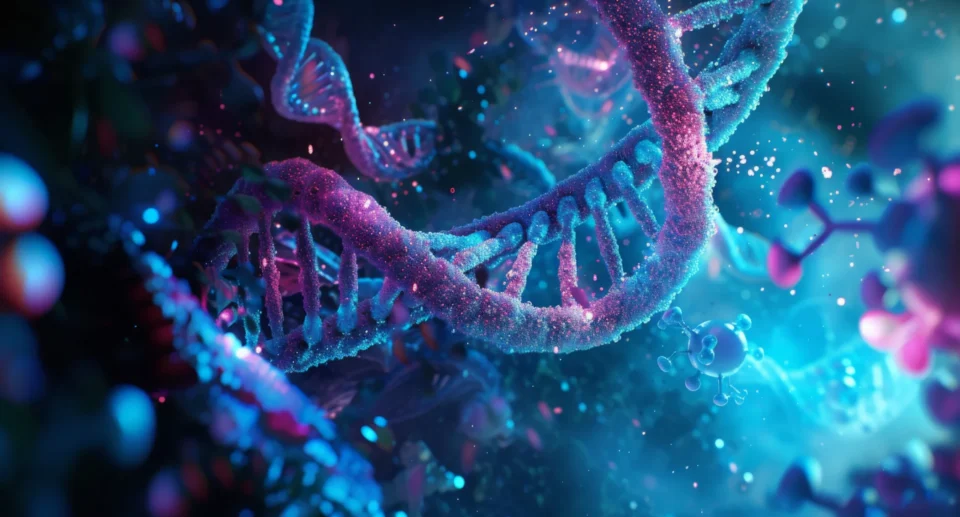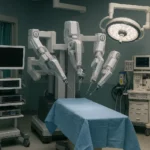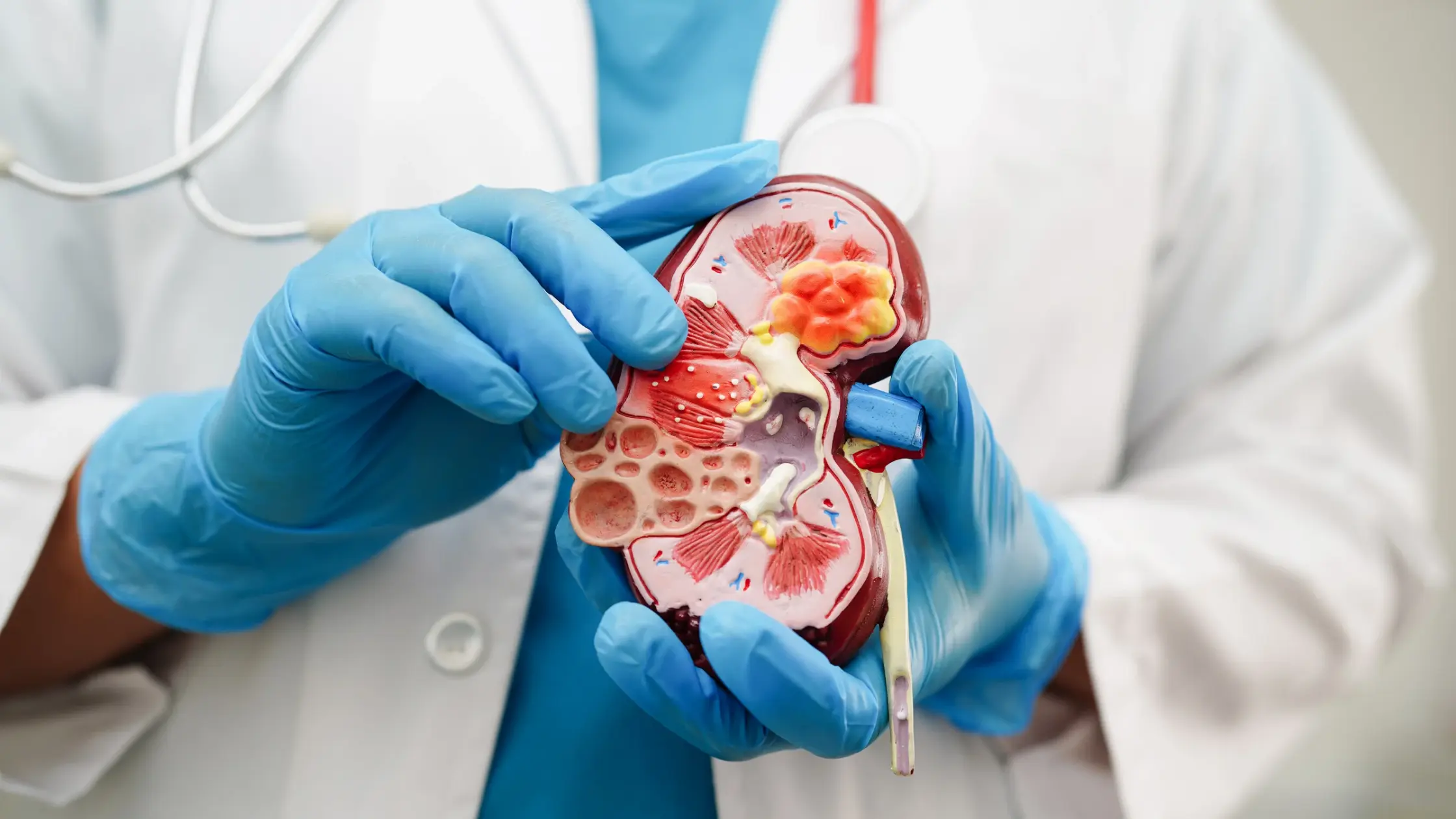Treating Chronic Kidney Disease Without a Transplant: What Really Works

Is the kidney transplant the sole option for Chronic Kidney Disease (CKD)? Most would believe so, but not quite. CKD is a chronic renal function disease and needs to be addressed over the long term. Even though there are only a few patients who need a transplant, there are plenty of others who do just fine without surgery using medication, dietary changes and other measures. This reflects how chronic kidney disease treatment can be successfully managed through non-surgical options for many patients.
The following facts show us how CKD is diagnosed, what treatment is like, and how to live well as a patient without receiving a kidney transplant.
Understanding Chronic Kidney Disease Treatment and Its Impact on the Body
CKD is a long-term condition in which the kidneys begin losing the ability to filter and remove waste and excess water. Consequently, it may lead to toxins within the body, which has serious health consequences.
Symptoms of Chronic Kidney Disease
CKD itself is not usually apparent at the beginning but could progress to symptoms such as:
- Weakness and fatigue
- Swollen face, ankles or legs
- Excess amount of urine, especially at night
- Shortness of breath
- Nausea and vomiting
- Increased pressure
- Chronic pruritus
- Muscle twitching
Causes of Chronic Kidney Disease (CKD)
CKD occurs for various reasons, such as:
- Diabetes – The leading cause of CKD worldwide, where high blood sugar slowly damages the kidneys.
- High Blood Pressure – Puts pressure on kidney blood vessels, reducing their ability to filter waste over time.
- Glomerulonephritis – A condition where the kidney’s tiny filters become inflamed and stop working properly.
- Polycystic Kidney Disease – An inherited disorder where fluid-filled cysts grow in the kidneys, reducing their function.
- Repeated Kidney Infections – Frequent infections can scar kidney tissues, leading to long-term damage.
- Overuse of Painkillers – Regular intake of certain pain-relief drugs can silently harm the kidneys.
- Obesity & Unhealthy Lifestyle – Poor diet, lack of exercise, and excess weight put kidneys under strain.
All patients cannot get a transplant based on choice, age or health, so the non-transplant treatments remain.
Genetic Links in Kidney Disease: Can CKD Run in the Family?
Yes—Chronic Kidney Disease (CKD) can sometimes be inherited. Certain conditions like Polycystic Kidney Disease (PKD) and Alport Syndrome are passed down through families and may affect kidney health at a young age.
If someone in your family has had kidney problems, even if you feel perfectly healthy, it’s wise to get screened early. Blood and urine tests can detect CKD in its early stages—long before symptoms appear.
Early detection means better outcomes, slower disease progression, and a greater chance of living a full, healthy life without the need for dialysis or transplant.
What Research Says About Chronic Kidney Disease (CKD)
- CKD is very common – Over 850 million people worldwide have some form of kidney disease.
- It often goes undetected – Many people don’t know they have CKD until it becomes serious.
- Early testing saves lives – Regular checkups can help catch CKD early and delay dialysis or transplant.
- Genes play a role – Conditions like Polycystic Kidney Disease are inherited. Family history matters.
- Technology is improving care – AI tools and apps help track kidney health and predict risks early.
- Research is exploring stem cells and artificial kidneys – The future of CKD treatment is non-surgical and personalized.
Access to care is still limited in many countries – That’s why patients are choosing India for affordable, expert treatment.
Can You Live Without a Transplant? Exploring Chronic Kidney Disease Treatment Options
Yes! CKD patients have an active life when treated properly. Determinants of the decision of transplant or no transplant are:
- The extent of damage to the kidneys
- Overall status of general health
- Acceptance of the risk of interventions such as dialysis and medications
- Donor availability
Other interventions, lifestyle modification and nephrology technology have enabled patients to control CKD without surgery.
Can Lifestyle Changes Alone Slow Down CKD Progression?
Yes, lifestyle changes play a major role in slowing CKD progression. A balanced, kidney-friendly diet, regular physical activity, managing blood pressure and blood sugar, quitting smoking and staying hydrated (within limits) can significantly help maintain kidney function. These habits reduce stress on the kidneys and delay or even avoid the need for dialysis or transplant, especially in early stages.
Latest Advances in Non-Surgical Chronic Kidney Disease Treatment
New non-surgical approaches are emerging, including SGLT2 inhibitors (medications that protect kidney function), anti-fibrotic agents and research into stem cell therapy. Digital tools like remote kidney health monitoring and AI-powered risk prediction models are also improving patient outcomes. These innovations are helping patients manage CKD more effectively without the need for surgery.
Non-Transplant CKD Strategies
A. Diet and Nutrition
Nutrition is at the core of CKD management. Some of the most important dietary modifications are:
- Sodium restriction for blood pressure control.
- Potassium and phosphorus restriction for the avoidance of complications.
- Ingestion of low-protein sources such as fish and eggs.
- Drinking a proper amount of water without placing an undue burden on the kidneys.
B. Medical Procedures
Doctors utilize medications to treat CKD signs and reduce disease progression. Some of these are:
- Firstly, medications to treat blood pressure.
- Secondly, medications for blood sugar level control (diabetic control medication).
- Thirdly, medications to avert anemia, weakness and fatigue.
- Lastly, bone and fluid retention, edema medicine.
C. Reducing CKD Progression by Modifying Lifestyle
- Regular exercise but not a rigorous gym workout puts excessive stress on the kidneys.
- Lowered stress by means of yoga, meditation, and good sleep.
- Avoidance of alcohol and tobacco to save the kidneys.
Dialysis as a Vital Chronic Kidney Disease Treatment Alternative
Chronic Kidney Disease (CKD) is a disease in which the kidneys cannot eliminate waste and extra water. Dialysis has to be performed instead of a kidney transplant in the case of severe kidney failure in end-stage CKD. Dialysis replaces kidneys by eliminating waste products, toxic substances and excess water from one’s body.
Types of Dialysis
Hemodialysis (HD):
- The blood is taken out, filtered out through a machine known as a dialysis machine, and returned to the body.
- Requires vascular access (e.g., AV fistula or catheter).
- Done 3-4 times a week at home or hospital.
Peritoneal Dialysis (PD):
- Utilizes the peritoneal membrane inside the body of the tummy to filter out the waste products.
- Dialysate solution is infused in the space inside the tummy to filter out the waste products, which drain out.
- Manual (CAPD) or night machine (APD).
Benefits of Dialysis
- Saves the lives of patients who cannot receive a transplant.
- Clears blood toxins and excess water, avoiding conditions such as hypertension and edema.
- Makes patients fit to lead normal lives with proper care.
Limitations
- Time-consuming with frequent weekly sessions.
- Risk of infection, particularly with peritoneal dialysis.
- Restrictions in the diet on salt, potassium and fluid.
Is Dialysis a Permanent Solution for CKD Patients Without a Transplant?
Dialysis is a life-saving treatment, but it is not a cure. It replaces some kidney functions by removing waste and fluid from the blood. While many patients stay on dialysis for years, it is often used when transplantation is not possible or while waiting for a donor. With proper care and support, dialysis patients can lead full, active lives, even without a transplant.
What emotional and mental health support is available for CKD patients managing their condition without transplantation?
Patients managing CKD without transplantation often face emotional stress, anxiety, and depression due to the chronic nature of the disease. Emotional and mental health support options include professional counseling, therapy sessions, peer support groups, patient education programs, and online communities designed specifically for kidney patients. These resources provide emotional strength, coping strategies, social connections, and encouragement to live positively despite CKD challenges.
When Should You See a Doctor for Chronic Kidney Disease (CKD)?
Knowing when to visit a kidney specialist can help prevent serious damage and improve long-term health. Here are important signs and situations when you must consult a doctor:
- Pain in the lower back or sides – Especially if recurring, it could point to kidney problems.
2. Persistent fatigue or weakness – Could signal your kidneys aren’t filtering waste properly.
3. Swelling in feet, face, or hands – A common sign of fluid buildup due to kidney issues.
4. Changes in urination – Foamy urine, blood in urine, or frequent night-time urination needs medical attention.
5. High blood pressure – If uncontrolled, it can damage kidney function silently.
6. History of diabetes – If you have diabetes, regular kidney check-ups are a must.
7. Family history of kidney disease – Early screening is recommended even without symptoms.
8. Loss of appetite or nausea – These may appear as waste builds up in your body.
9. Dry, itchy skin or muscle cramps – A sign your kidneys may not be balancing minerals well.
Regimen Healthcare: Your Trusted Partner in Chronic Kidney Disease Treatment
At Regimen Healthcare, we understand how challenging Chronic Kidney Disease can be. That’s why we offer complete support to international patients seeking advanced and affordable kidney care in India.
We work with India’s top kidney hospitals and renowned nephrologists, ensuring you receive the best possible treatment—safely, quickly, and comfortably.
Why Choose Regimen Healthcare for Kidney Treatment?
- ✅ Personalised Treatment Plans – Every patient gets a care plan tailored to their medical needs and condition.
- ✅ Top Kidney Specialists – Consult with India’s most experienced nephrologists and urologists.
- ✅ Access to World-Class Hospitals – We partner with JCI- and NABH-accredited hospitals offering dialysis, transplant, and advanced renal care.
- ✅ Hassle-Free Medical Visa Assistance – Our team helps you get a fast-track medical visa without stress.
- ✅ End-to-End Travel Support – From flight bookings to airport pickup, we take care of everything.
- ✅ Affordable Dialysis & Kidney Transplant Packages – Get high-quality care at a fraction of the cost compared to many countries.
- ✅ Multilingual Support – We speak your language! Our coordinators assist patients from Africa, the Middle East, CIS, and more.
- ✅ Second Opinions & Teleconsultation – Speak to Indian kidney specialists from your home before you travel.
- ✅ Compassionate Care Throughout the Journey – Our team stays with you from the first call till full recovery and follow-up.
Let Regimen Healthcare be your partner in healing.
Why Choose India for Chronic Kidney Disease Treatment?
India is one of the top destinations for kidney disease treatment due to:
- State-of-the-art machines with highly sophisticated nephrology equipment.
- Super-specialist nephrology experts and kidney experts.
- Lower price of treatment relative to Western countries.
- Less surgical waiting time.
Best Kidney Hospitals in India
Among the best kidney hospitals in India are:
- Fortis Healthcare
- Medanta: The Medicity
- BLK Super Specialty Hospital
- Max Healthcare
Therefore, these patients seeking kidney hospitals in Delhi or some other city can receive the finest medical care.
Conclusion
Indeed, kidney transplantation is only one of the CKD treatment modalities. Moreover, with proper professional treatment, lifestyle correction, and proper kidney management, the patients manage to get a chance to have a healthy life.
India has ample advanced nephrology treatments, and hence now it is one of the most sought-after traveling destinations for foreign patients as well.
In the event that you or your patient suffer from CKD, speak with all other options before opting for transplantation.
For professional consultation and care, call Regimen Healthcare today!
WhatsApp/Call: +91-9310356465
Email: [email protected]
Visit: www.regimenhealthcare.com
Let Regimen Healthcare be your partner in journey.
FAQs
1. Is CKD treatable without a kidney transplant?
Yes, CKD can be treated through lifestyle changes, medications, and dialysis.
2. How do I know whether I need a kidney transplant?
In such cases, a specialist physician for kidney disease will study your case and suggest the most suitable process of treatment.
3. Where is the best kidney hospital in India to treat CKD?
The best kidney hospitals in India are AIIMS, Apollo, Fortis, and Medanta.
4. In what ways can dialysis benefit patients with CKD?
Dialysis removes waste products and excess water from the blood without kidneys.
5. Can CKD be managed effectively without a kidney transplant?
Yes, CKD can be effectively managed with diet changes, medications, lifestyle adjustments, and dialysis without needing a transplant.
6. Is dialysis a long-term alternative to kidney transplantation?
Dialysis can sustain CKD patients long-term, providing effective kidney function replacement even without transplantation.
7. Does regular exercise benefit CKD patients who cannot have surgery?
Moderate exercise helps manage CKD symptoms, improves overall health, and slows disease progression.
8. Can CKD patients have a normal life expectancy without transplant?
With proper care, medications, lifestyle modifications, and dialysis, CKD patients can lead active lives without transplant.








